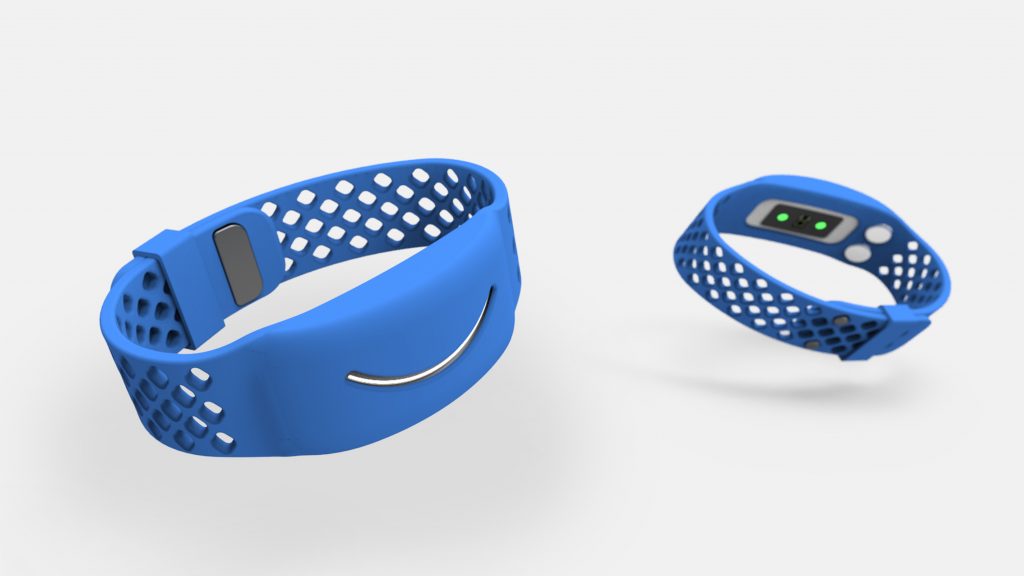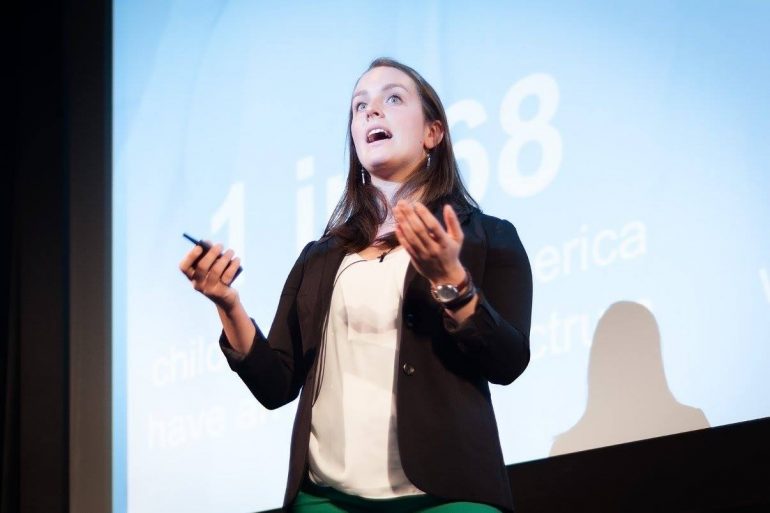As the fusion of tech and healthcare continues to grow and evolve, so too do the tools that will allow health care consumers to take matters not only into their own hands, but anywhere a wearable can fit.
In the future, the healthcare industry will move from the status quo of the “sick care” model – which acts only after people become sick – to a true health care model that focuses on keeping people healthy through preventative measures. Remote monitoring platforms and concrete, actionable insights will play a big role in this transformation by enhancing our understanding of personal health and wellness.
At Awake Labs, we are building Reveal, a tool powered by a wearable band to empower care by providing real-time, personalized insights into stress and anxiety. We are currently focused on designing Reveal for neurological disorders, starting with autism. We believe the insights provided by a platform for wearable tech, like Reveal, will shift the landscape of the healthcare industry.

As an alumna of both the Next36 and Singularity University, I am drawn towards the massive potential for impact that Reveal has to offer, am confident in our applications of machine learning and wearables to support wellness and education, and have developed a business model that works to make us leaders in this field.
From our community, we’ve learned that both our health care and education systems are not adequately structured to support the unique and complex needs of people with neurological disorders.
In addition to working in both the health and wellness industry, we also work in education. From our community, we’ve learned that both our health care and education systems are not adequately structured to support the unique and complex needs of people with neurological disorders.
For example, teachers often do not receive the proper training to support students with behavioural challenges. Without this training, situations may escalate to the point where students have to be removed from the classroom, which could prevent them from interacting with their peers and feeling included.
Also, health care practitioners sometimes mistake symptoms of anxiety for something else; this means the anxiety can go untreated, with long lasting repercussions. With health care tech, we can provide real insights to doctors from the data collected by remote health monitoring platforms. The artificial intelligence (AI) behind the systems can automatically flag abnormalities that physicians should focus on, giving them time to act before abnormalities turn into true distress.
The future of health will incorporate AI in all areas. For one more example, new imaging solutions will be created to allow us to see more inside the body – whether by enhancing current imaging techniques, or by observing changes in systems through implantable or ingestible devices. Machine learning will help analyze and process these images to see patterns that are difficult for our human brains, to support radiologists in making a diagnosis.
The future of health incorporates artificial intelligence in all areas.
For our education system, the next 25 years will bring a crazy amount of innovation and a healthy appetite for adoption of new technologies. Classrooms – especially universities – will be distributed and more hands-on. The rise of automation in blue-collar jobs, will focus education on creativity,programming, and care.
The future holds much change for both patients and health care practitioners. Their relationship will undoubtedly evolve beyond what we have grown accustomed to over the years, becoming both more automated and more personal. Because every individual’s health is unique, specific and accurate data collected via tech that is solely focused on one patient can greatly assist the way in which doctors provide the care each patient needs. While tried-and-tested health care methods should not be neglected, it is important to appreciate the way advancements in the field can impact the way we take care of ourselves and each other.
Discover more alumni predictions at whatsnowwhatsnext.ca.
Feature image credit Christina Moro Photography


